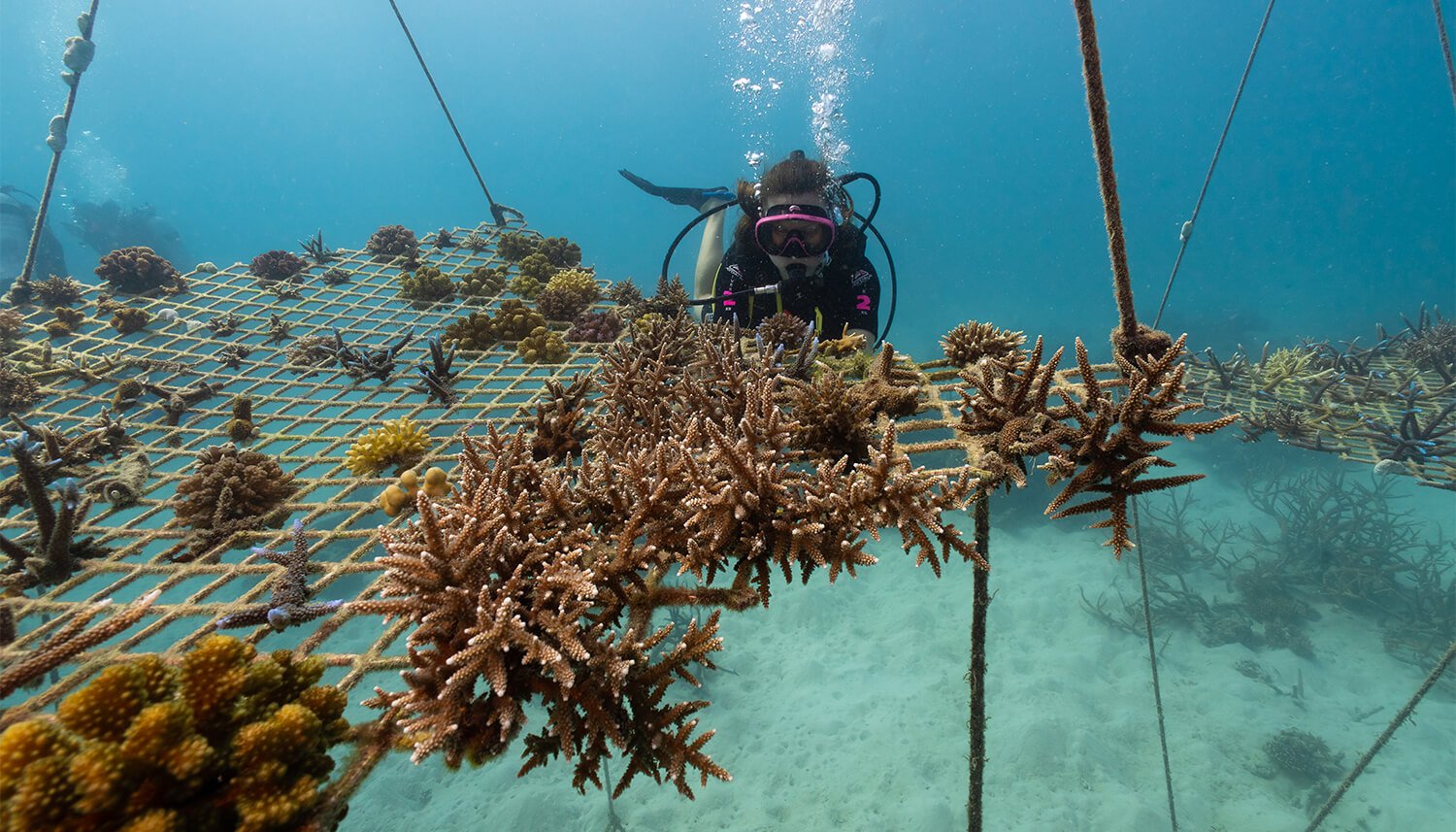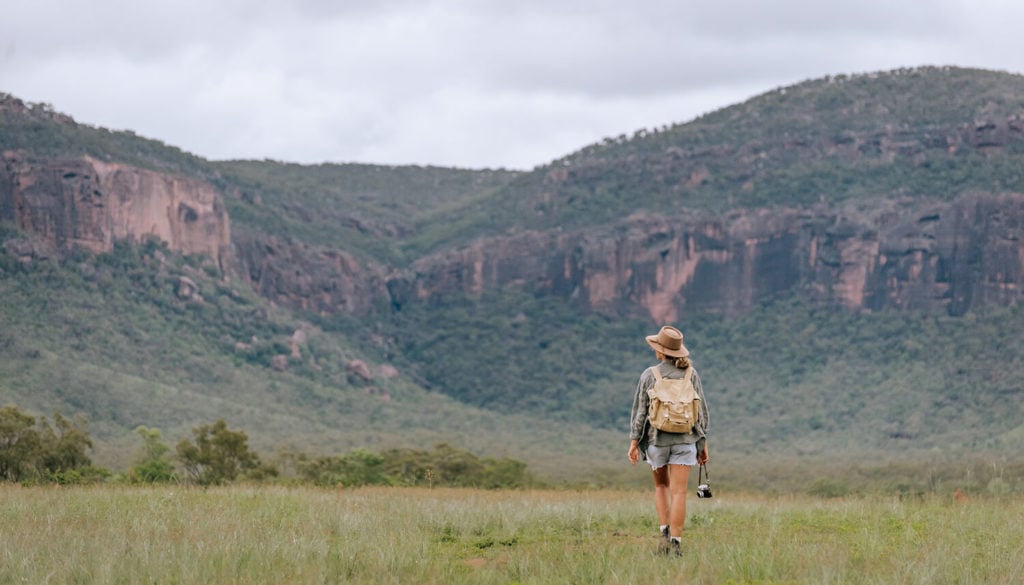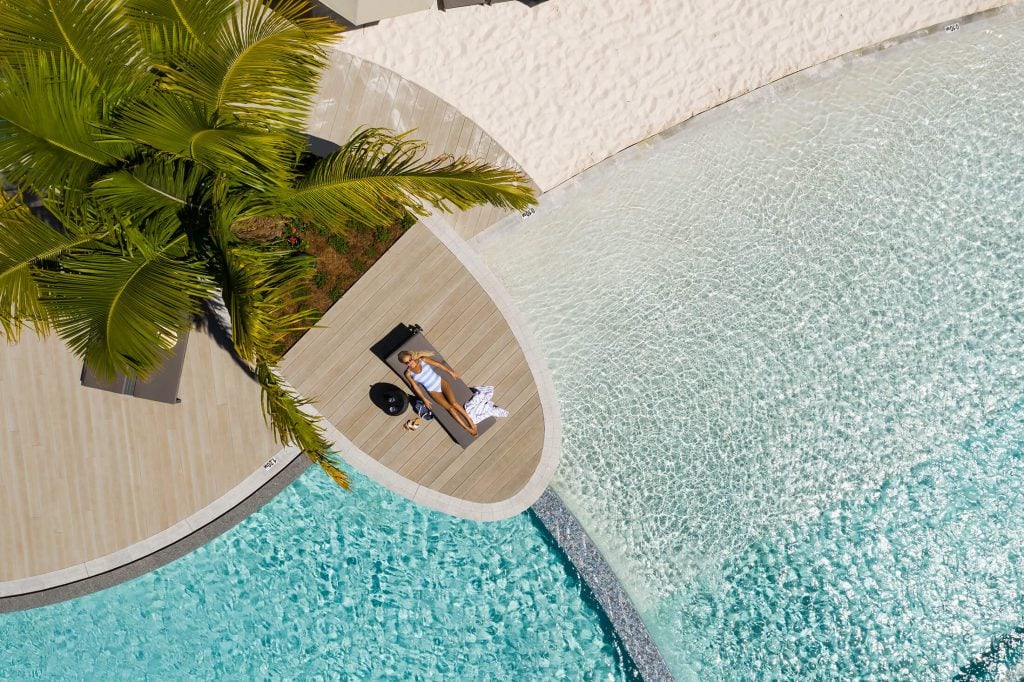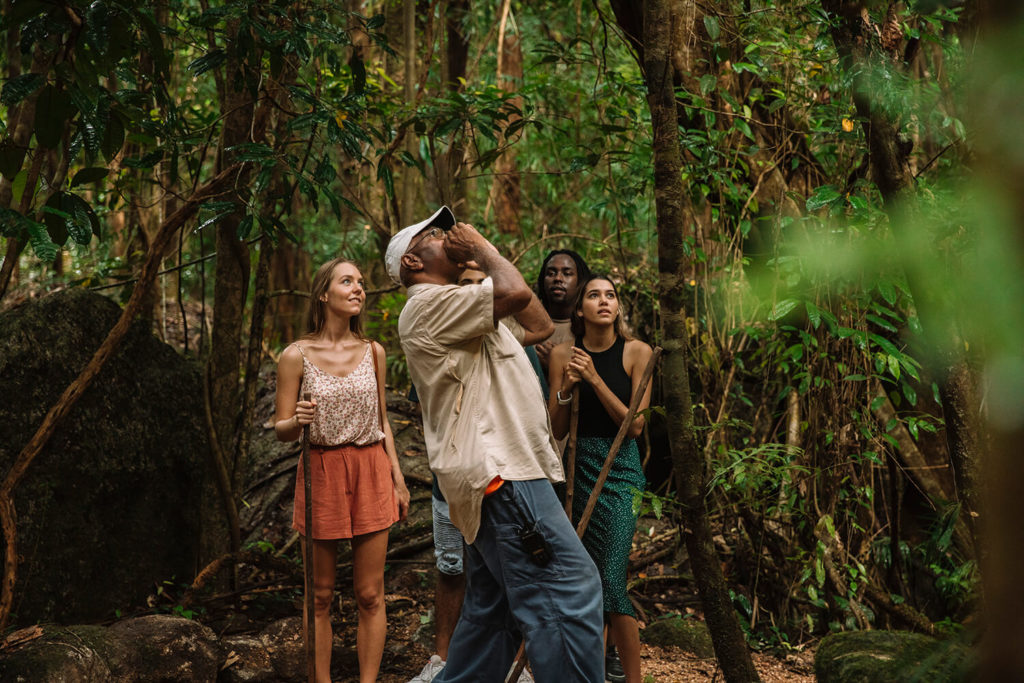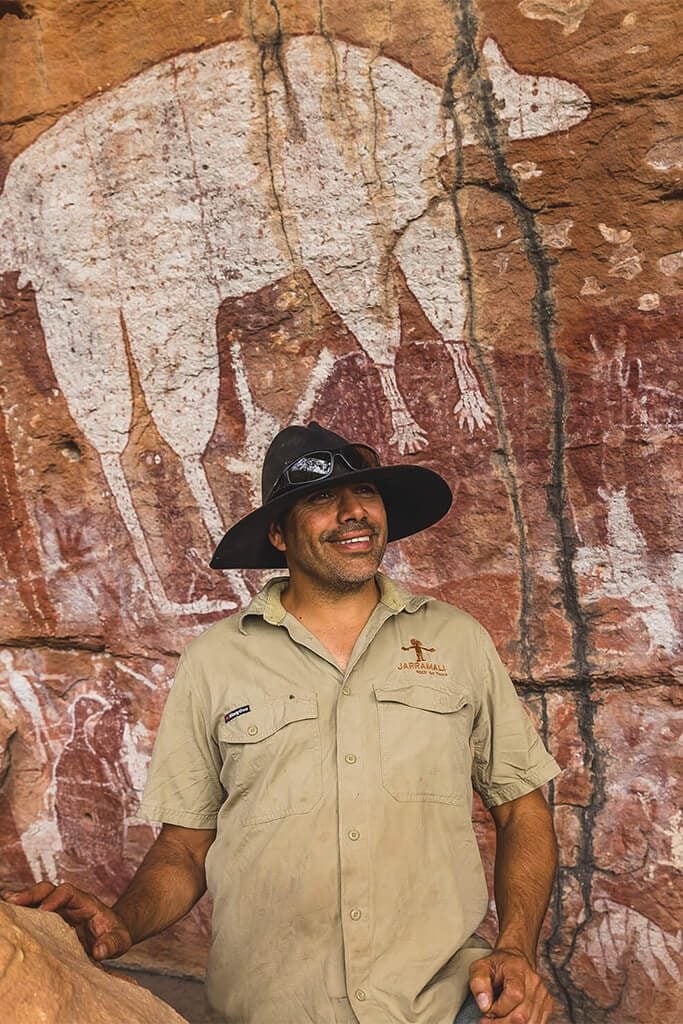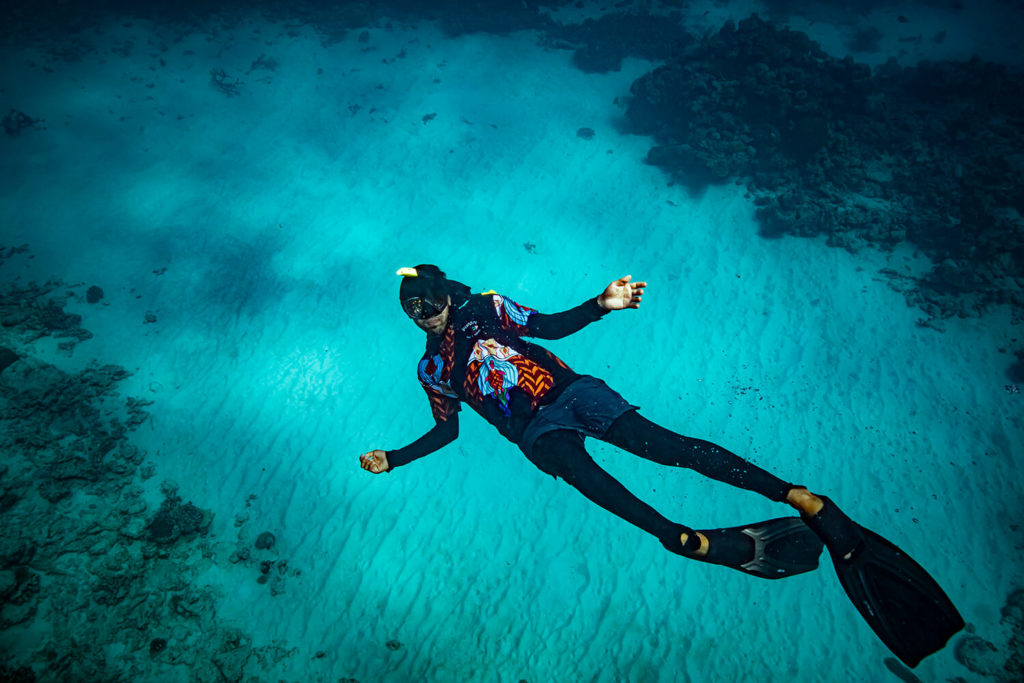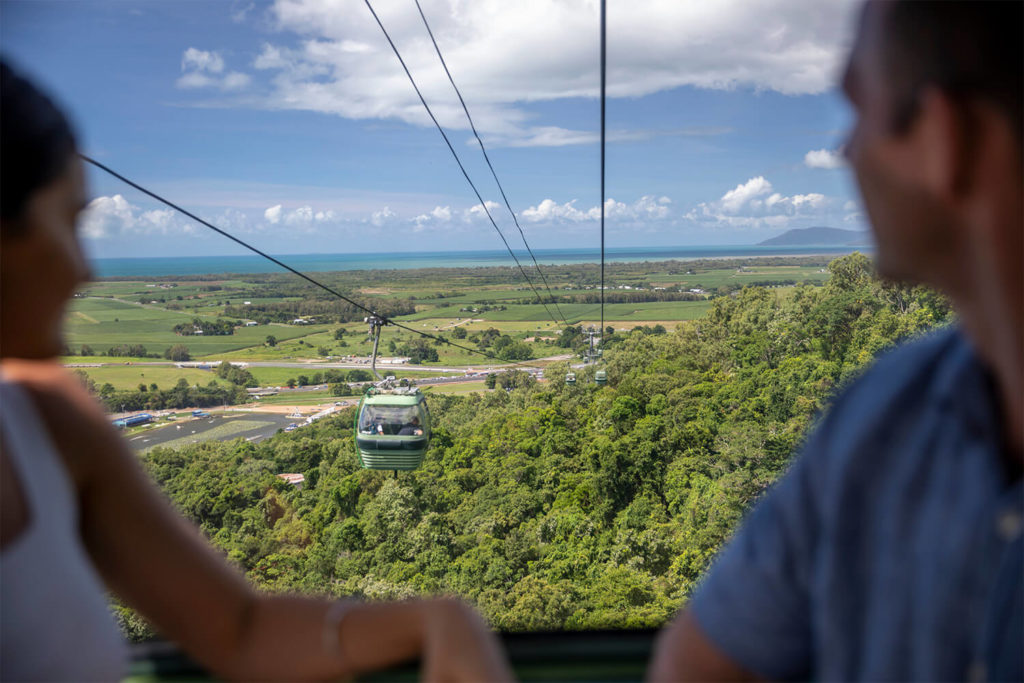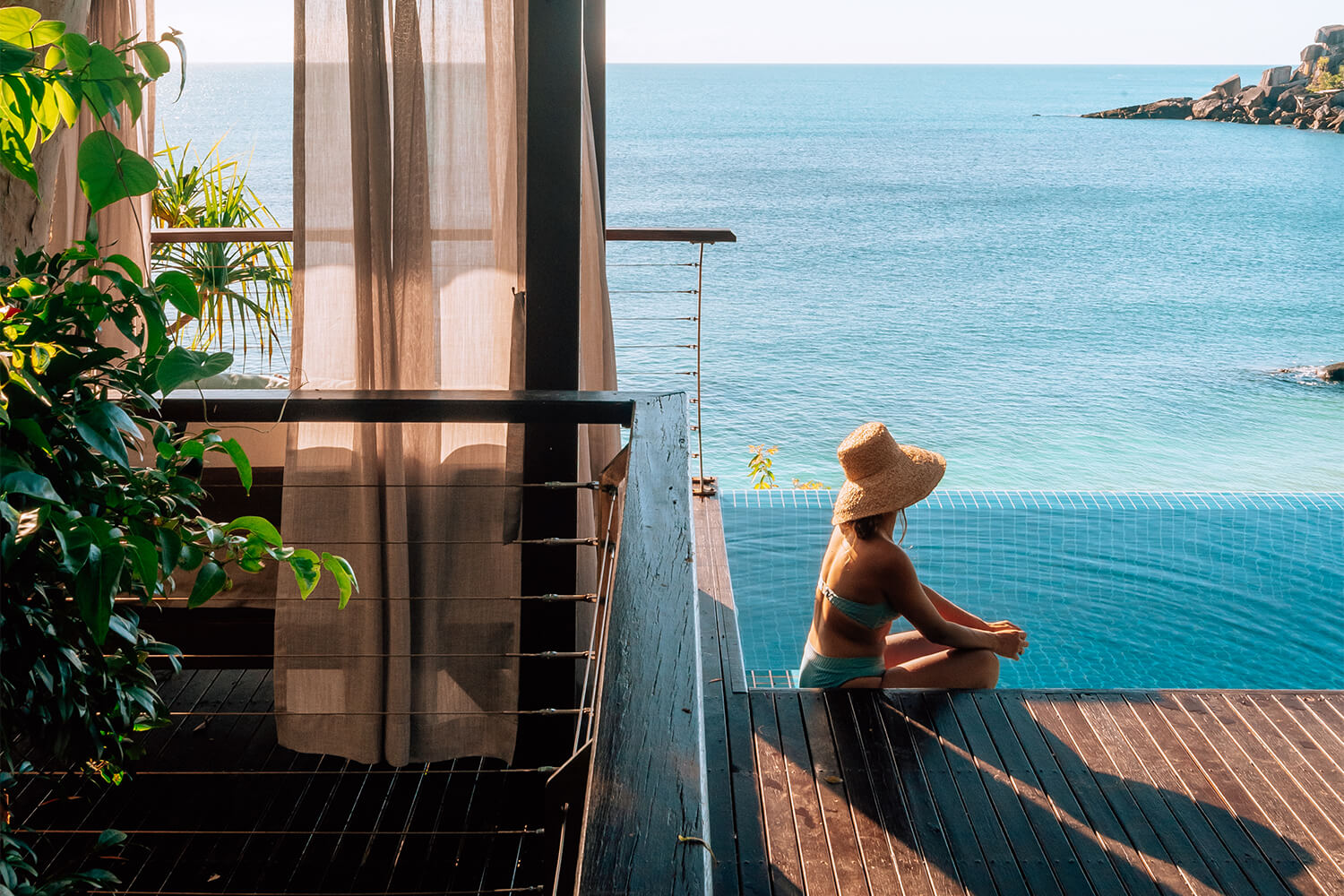TNQ Writer
Now more then ever, we find ourselves yearning to connect to the planet in a way that doesn’t take away from it, but that enhances it.
Long gone are the days of souvenir-filled, carbon-guzzling ventures. Instead, we are seeking itineraries that make connections as well as memories. We want to be restored through genuine connection with the natural environment and different cultures in ways that benefits all involved.
As a destination with an array of Eco Certified experiences and dedicated environmental restoration projects, Tropical North Queensland has long been leading the change towards purposeful travel. Douglas Shire, which consists of Port Douglas and Daintree and Cape Tribulation, is the first Eco Destination in the country.
Learn about the Great Barrier Reef and find yourself yearning to protect it, walk On Country with Traditional Owners who share thousands of years of connection to their land or replant trees in the world’s oldest surviving rainforest, there’s plenty of ways to travel for a purpose in the tropics.
Reef Restoration Projects
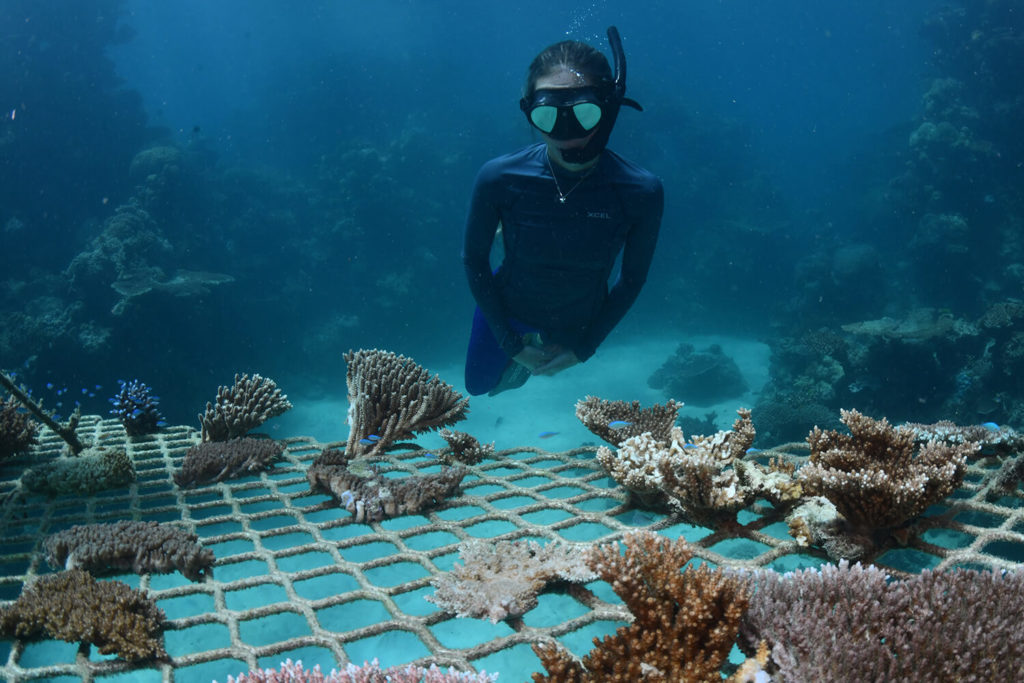
The Coral Nurture Program's coral nursery on the Wavelength Reef Cruises site
Gardeners come in all shapes and sizes, and those working to revitalise the world’s most iconic coral garden are vital to its future. Since its inception in 2019, reef warriors and tourism operators have worked together to plant over 59,000 corals through the Coral Nurture Program. The program is a unique partnership between tourism and science, which aims to assist in the recovery of “high value” reef sites on the Great Barrier Reef. Coral is attached to bare rock face using a Coralclip, which is a spring loaded metal clip with a masonry nail. The Coral Nurture Program also propagates corals on dedicated coral nurseries.
A few nautical miles across the big blue, another team of underwater gardeners are placing coral fragments on coral tree frames, producing ocean-based nurseries for these coral pieces to grow and thrive. In under a year, these fragments will be re-attached to the reef where they will continue to grow. This team is part of Reef Restoration Foundation, who aim to produce 1 million new corals on the Great Barrier Reef by 2026.
This incredible ecosystem truly is like something from another planet and GBR Biology have literally gone to Mars (Incorporated) to implement a reef-restoring solution. The coral rubble stabilisation project uses steel grid structures called “reef stars” to stabilise fields of loose coral fragments. Fragments of coral are attached to the structures and are used to fill gaps between patches of natural live coral.
Scuba divers and snorkellers can head out on Passions of Paradise’s Marine Biologist For a Day Program to assist in reef conservation. Snorkellers can join a Master Reef Guide to assess reef health by completing a Rapid Monitoring Survey. Certified scuba divers can observe coral planting on either the reef or a coral nursery.
Indigenous Experiences with Traditional Owners
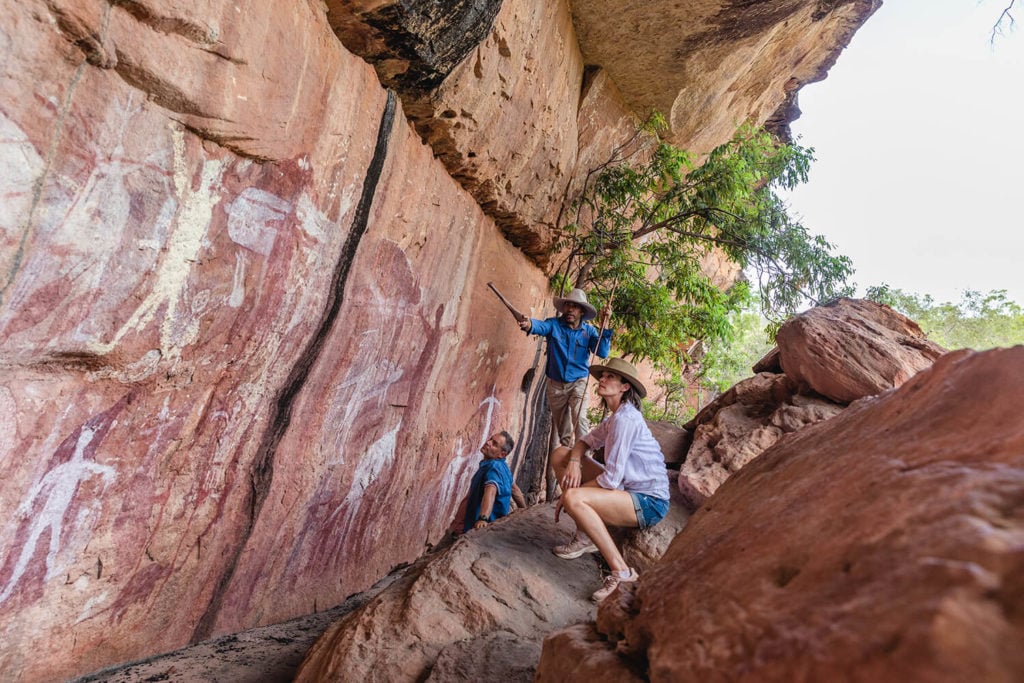
Explore rock art with traditional owners at Jarramali Rock Art Tours
Walking on Country with Traditional Owners and cultivating a connection with the land they have lived on for thousands of generations is a moment that will stay with you for life.
Imagine standing under a sky of thousands of skies whilst listening to stories of Gangalidda-Garawa ancestors who looked at the same stars hundreds of years ago with Yagurli Tours. Or being welcomed to the ancient rainforest by its Traditional Custodians, the Kuku Yalanji people with a smoking ceremony under a canopy of greenery at Mossman Gorge.
Absorb age old wisdom and be inspired by stories of Sea Country Custodians before delving into this unique wonder to gaze at mazes of colourful coral and meet marine life that the Traditional Owners have been akin to for thousands of years with Dreamtime Dive & Snorkel. Or discover art far older than you’ve ever imagined in traditional rock art galleries with Jarramali Rock Art Tours and wander to vast sandstone escarpments rich with age-old wisdom.
Wildlife Conservation
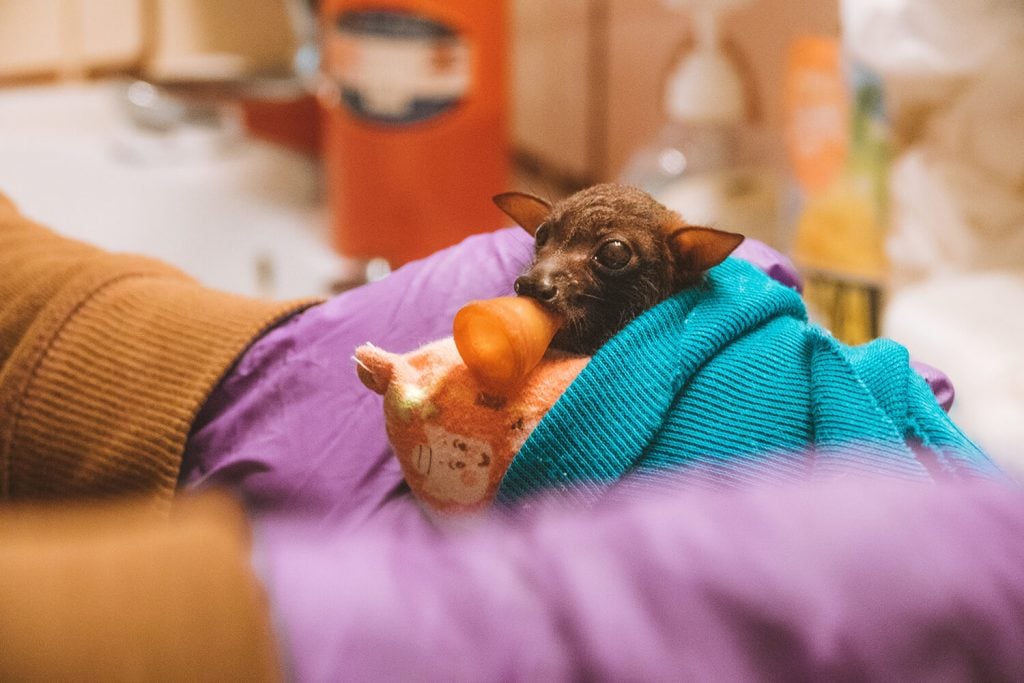
Tolga Bat Hospital
Tropical North Queensland’s grasslands and rainforests are home to over 400 plus bird species and over 100 mammal species, some of which are found no where else on earth. From the endangered Southern Cassowary and Lumholtz’s Tree Kangaroo in the Wet Tropics Rainforest, to the six species of sea turtle on the Great Barrier Reef, conservation and protection of species is vital to their future.
The region has many dedicated wildlife conservation organisations that welcome visitors, including the Tolga Bat Hospital, Tropical Animal Rehabilitation Centre and the Cairns Turtle Rehabilitation Centre. Both Tree Roo Rescue and Conservation Centre and Lumholtz Lodge care for the endemic and endangered Lumholtz’s Tree Kangaroo, with the latter acting as a Bed and Breakfast that you can stay at. Volunteer-run organisation The Agile Project rescue and rehabilitate Agile Wallabies and other native species throughout Cairns and the Northern Beaches.
C4 Community for Coastal and Cassowary Conservation aims to buy back land to secure essential cassowary habitat in Mission Beach, while Rainforest Rescue have a dedicated Save The Cassowary project in partnership with Indigenous Cooperations, government organisations and universities.
The Australian Quoll Conservancy is dedicated to the conservation of another endangered species, the Spotted-Tailed Quoll, as well as Australia’s additional three quoll species.
Rainforest & Ecosystem Conservation
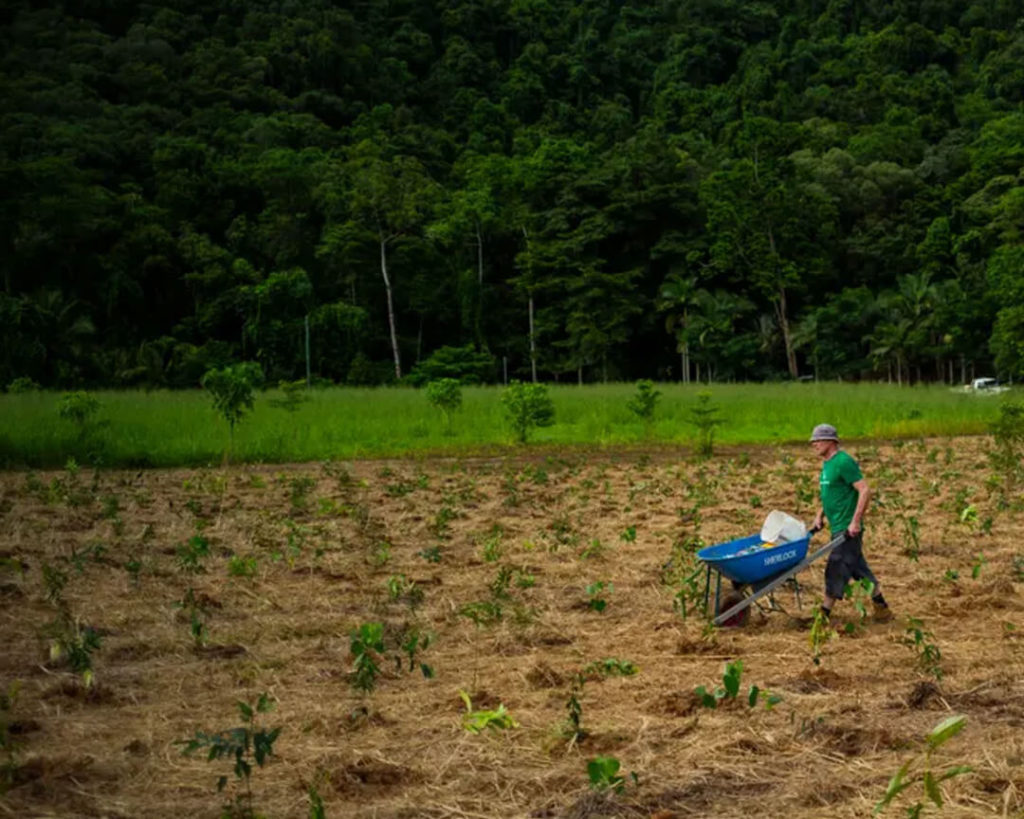
Rainforest Rescue run a Plant a Rainforest project
The Wet Tropics World Heritage Rainforest is the oldest rainforest on the planet and is estimated to be 80 million years older than the Amazon. This extraordinary place, which is the same size of the country of Cyprus, is under threat from developments and climate change. Rainforest conservation organisations and initiatives are integral to its future.
One notable organisation is Rainforest Rescue, who work to buy back privately-owned high value blocks of land in the Daintree so that flora and fauna may thrive. They also have a Native Rainforest Nursery and revegetate the rainforest through their Plant a Rainforest Project.
Treeforce also reinvigorate the rainforest through tree planting and revegetate areas with fragile and fragmented ecosystems in Cairns and the surrounding areas. The Skyrail Foundation aims to protect tropical rainforests through research and education and conduct studies to enhance rainforest protection.
Tropical North Queensland is home to other unique and integral ecosystem such as mangroves and the Cairns and Far North Environment Centre are currently working to protect mangrove ecosystems through their MangroveWatch program, a citizen-science partnership that collects data for scientific research. The organisation also run a drain stencil project, in which the community spray paint the message “drains to the reef” on drains to encourage the community to dispose of waste water more responsibly.
Is this the Greater Purpose of Travel?
Presented by David Koch from Pinstripe Media, a panel of CEOs, journalists and tourism heavyweights discuss how current global circumstances are driving the desire for a greater purpose of travel, and how this aligns with the business philosophies that underpin tourism in Tropical North Queensland.
Eco-Accommodation
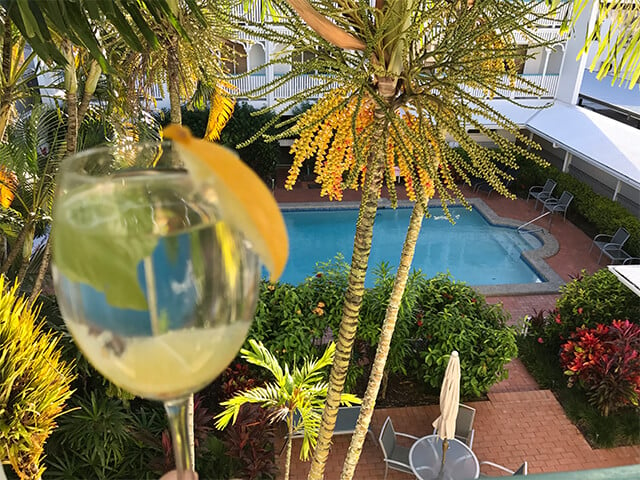
Being sustainable while visiting Tropical North Queensland is so simple you can do it in your sleep! Opting to stay at eco-conscious accommodations ensures you’ll effortlessly experience all region has to offer, while leaving a positive impact on the place you’re visiting and preserve it’s natural beauty.
City Terraces leads the way in eco-conscious stays, prioritising your comfort, convenience, and sustainability. Exploring on foot is easy with their central location in Cairns or take advantage of one of their complimentary bikes to go sightseeing. Plus, with their innovative ‘freecycle’ initiative, forgetting toothpaste is no problem—guests can leave or take items they may need during their stay. From solar powered electricity to carbon offsetting, their sustainable practices have found them accredited by both Ecotourism Australia and ecoBiz.
Explore staying at Thala Beach Nature Reserve, transformed from barren sugar cane plantations into a lush tropical oasis teeming with thousands of indigenous plants. Thala has worked hard at rejuvenating the land and providing a sanctuary for wildlife to thrive in their natural habitat.
Nestled in the ancient rainforest, Daintree Secrets excels at providing eco-luxury. With hydro-electricity and septic tanks, they minimise their footprint while providing modern comforts and preserve natures beauty.

